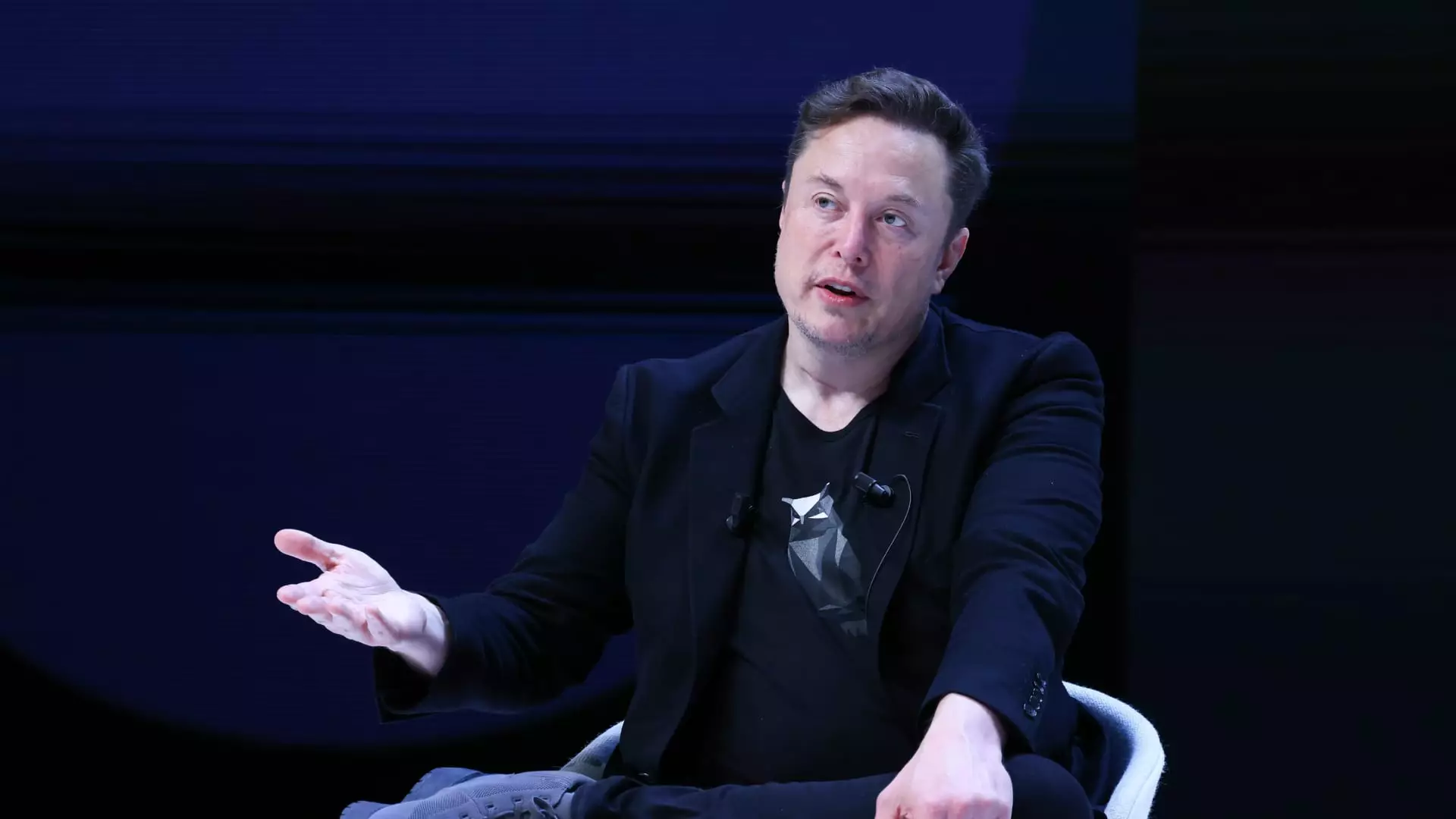Elon Musk, the CEO of Tesla, recently stirred up discussions with a proposal to invest $5 billion into his newest startup, xAI. This proposal was put forth through an informal poll on a social network, sparking curiosity and speculation among investors and tech enthusiasts alike.
Following Tesla’s second-quarter earnings call, which fell short of analysts’ expectations for the fourth consecutive quarter, Musk shared his proposal. Despite declining revenue in Tesla’s core automotive segment, the company saw a surge in energy storage sales and hinted at a future filled with robotaxis and humanoid robots in development. However, Tesla’s stock price plummeted more than 7% after hours, signaling investor concerns.
Musk’s various companies, including Tesla, SpaceX, The Boring Company, Neuralink, X Corp., and xAI, often collaborate and engage in transactions with each other. For instance, SpaceX has used ad campaigns on social media platforms to promote its services, and The Boring Company is involved in tunnel construction at Tesla’s factory in Texas. This interconnectivity raises questions about the extent to which these companies operate independently.
xAI, established in March of the previous year, focuses on developing AI software products and large language models to compete with industry giants like Google, Microsoft, and Meta. Their flagship product, Grok, aims to offer unique features compared to existing chatbots in the market. Musk has positioned Grok as a politically incorrect and witty alternative to its competitors, suggesting a distinctive approach to AI technology.
The $5 billion investment proposal for xAI raises significant questions about the strategic alignment of Tesla’s resources. Musk mentioned that xAI has contributed to Tesla’s advancements in Full Self-Driving technology and the establishment of a new data center. However, the specifics of how Grok is enhancing these areas remain ambiguous. Additionally, the need for shareholder approval underscores the importance of transparency and accountability in decision-making processes.
In a crowded AI landscape dominated by well-established players like Google, Microsoft, and OpenAI, xAI faces substantial competition. While the company has secured substantial funding and achieved a significant valuation, the efficacy of its products, particularly Grok, in delivering tangible value remains to be seen. Musk’s vision for xAI as a disruptive force in the AI industry may face challenges in execution and market adoption.
Elon Musk’s proposal to invest $5 billion in xAI has generated interest and skepticism within the tech and investment communities. As Tesla navigates through a challenging financial landscape and explores new avenues for growth, the strategic implications of investing in xAI merit careful consideration. The success of xAI hinges on its ability to differentiate itself in a competitive market while delivering innovative solutions that resonate with customers and stakeholders alike.


Leave a Reply